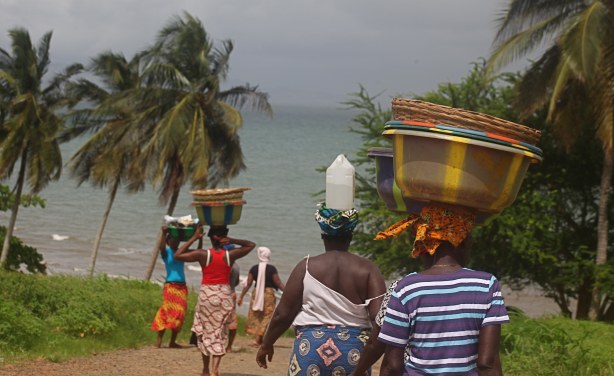Roma and traveller women in Britain face high levels of domestic abuse and rarely seek help beyond their close-knit and isolated communities, a parliamentary committee heard on Wednesday.

Their male-dominated cultures leave many women vulnerable to abuse by men – relatives and partners alike – according to evidence given to the Women and Equalities Committee.
“Coercion and control is an aspect that reaches far and wide,” Janie Codona, the manager of the community group One Voice 4 Travellers, told the committee.
The term traveller is used to cover a number of traditionally itinerant people, including Romany Gypsies and Irish Travellers, both of which are recognised as distinct ethnic groups under British law.
There are an estimated 63,000 travellers in Britain, according to the most recent census in 2011.
They typically live in caravans, moving regularly en masse with their community; some live at more permanent sites.
Wherever they live, the women risk a double dose of discrimination – from inside their own community for their gender and outside for their ethnicity.
DISCRIMINATION
Politicians heard how traveller women and girls often face gender-based control, with girls as young as eight expected to take on housework and the care of male relatives.
“A lot of them are not allowed to go to work – they are literally dragged out of school and it’s cleaning, cooking, ironing older brothers’ shirts, babysitting younger ones – this is preparation for marriage,” said Codona.
“They are in the control of a father and they then become controlled by their husband.”
Violence and sexual abuse was also cited in the session.
“Some women I have worked with…believe it is their husband’s right to have sex with them whenever they want and when a traveller man sleeps with a woman he owns her,” said Kim White, a former constable at Kent Police in southeast England.
Girls and women are often kept largely isolated from outside society so struggle to access support, while in some cases discrimination among police and officials mean they are not given the help they need, the committee heard.
“There is an expectation still among some (police) officers that domestic abuse is prevalent in the gypsy traveller communities…so they don’t actually support women to leave,” said Win Lawlor of the Irish Community Care organisation.

